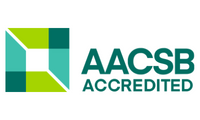How will I learn during this course?
You will embark on a number of different modules in your first year including core modules to support your learning journey, and specialist modules within accounting and finance. You will also have the option of undertaking an additional year in either placement, study abroad or a hybrid of the two. You will receive guidance on both opportunities led by your Programme Leader, supported by the Director of Employability and the Faculty Lead for Study Abroad. The university provides significant guidance through our placement office and international partnerships team who enjoy successful relationships with a wide range of employers and global universities.
In your final year, you will be challenged through modules that allow you to take strategic consideration of business and management within an accounting and finance context, as well as a substantial research-based activity that is linked to a specific research problem within accounting and finance.
If you do not undertake the study abroad or placement option, you will be able to choose between either a management enquiry or a consultancy project with an external client as your final year research-based activity to ensure you graduate with ‘real-world’ business experience. For those that have undertaken a study abroad or placement, you will also have the option of choosing a dissertation. Whichever you choose, your programme leader will support you in selecting the right option for you and will work with the teaching teams to identify the different modules which best match your career aspirations.
Teaching methods include lectures, seminars, and workshops. There is significant emphasis on independent learning as well as self-directed and group activities as this course is, in effect, the final year of a degree course.
Teaching is backed up by a well-designed support system in order to ensure a successful learning journey and the development of the necessary academic study skills. Extensive feedback, from both tutors and peers, is built into the course. Whatever your background, we’ll help you take the more critical, deeper, and research-informed approach that’s needed for an honour’s degree at a UK university.
Our assessment strategy is based on our understanding that everyone has different needs, strengths, and enthusiasms. Assessment methods will include a portfolio of work, group presentations and reflective statements.
See all the Modules for this course.
 Option for Placement Year
Option for Placement Year Option for Study Abroad
Option for Study Abroad

























